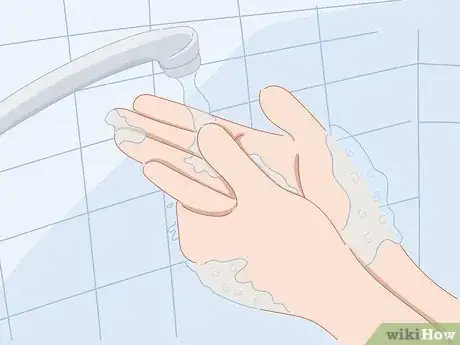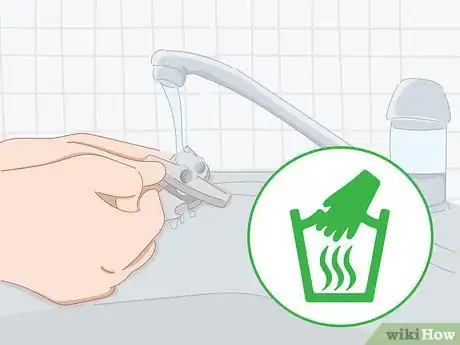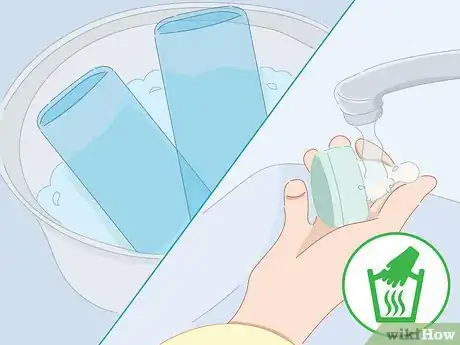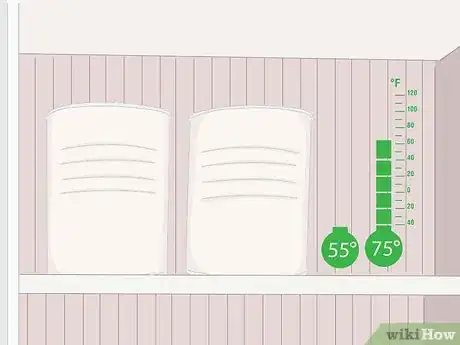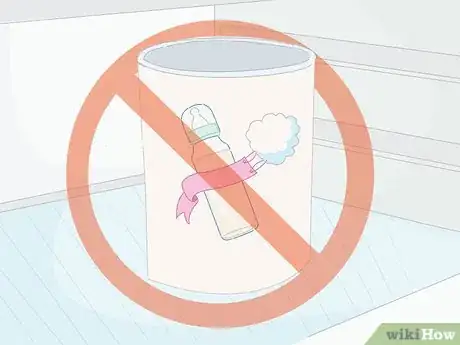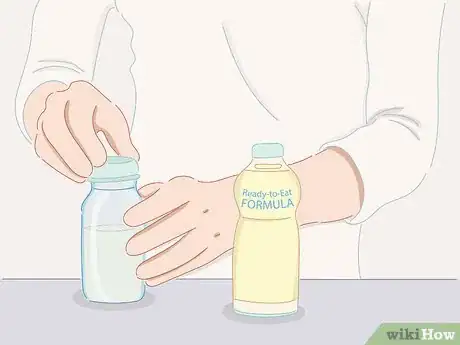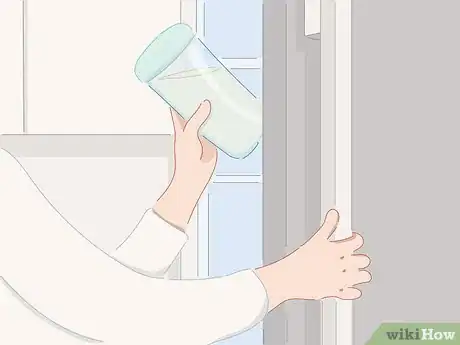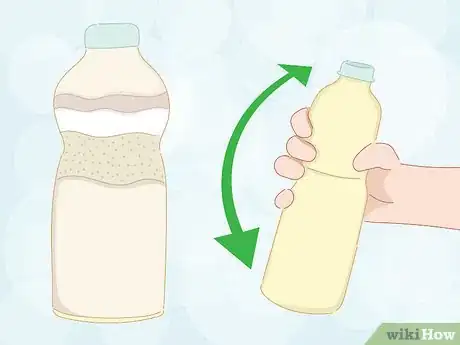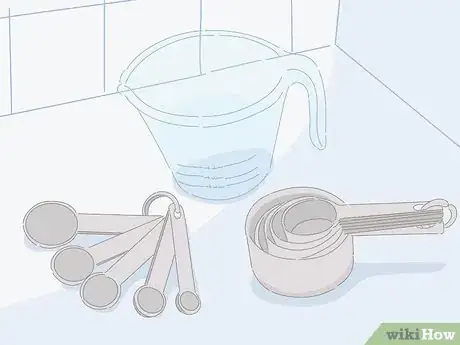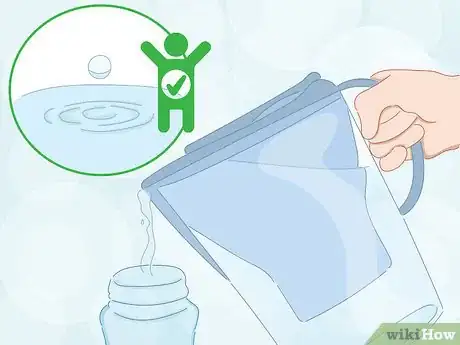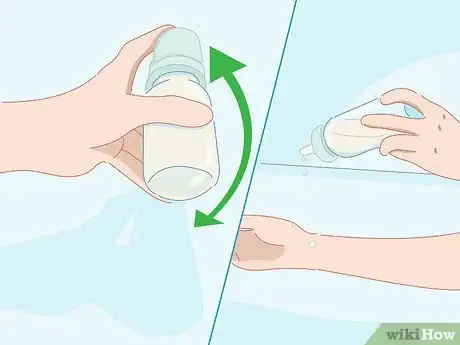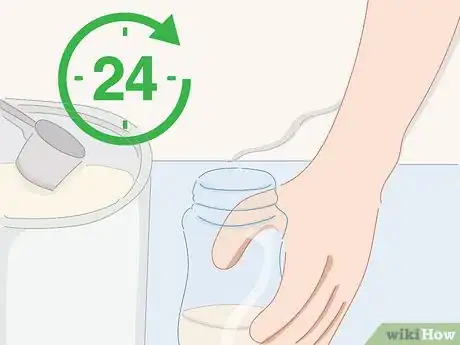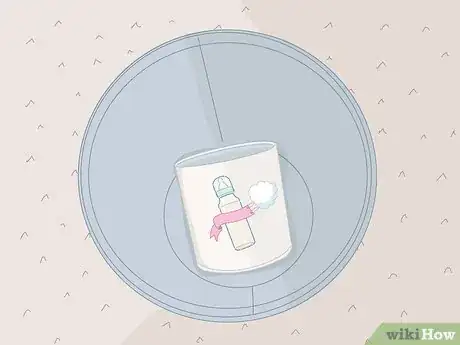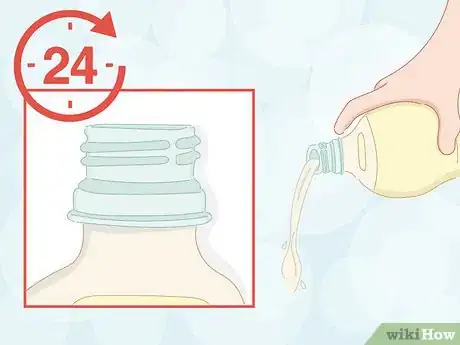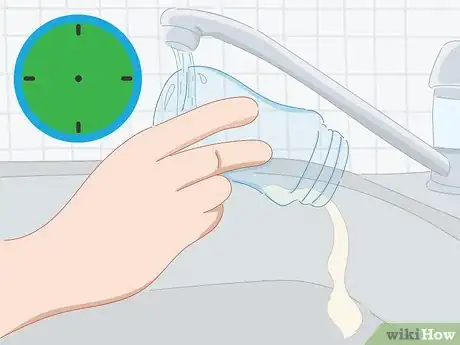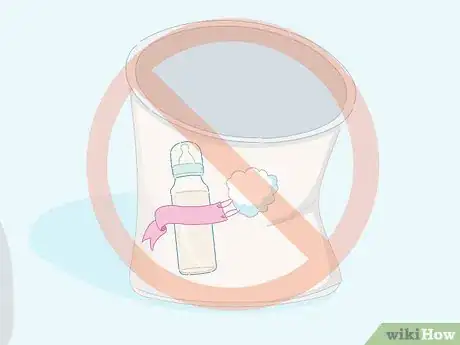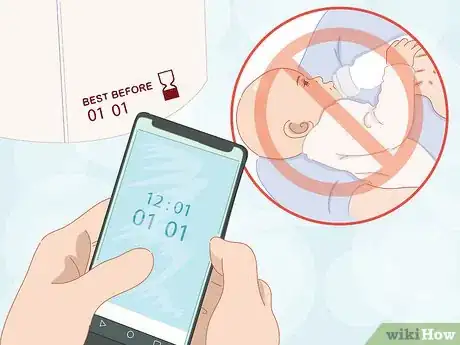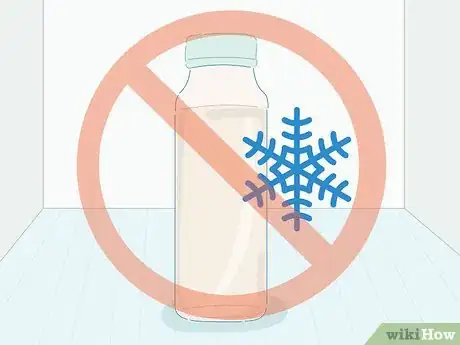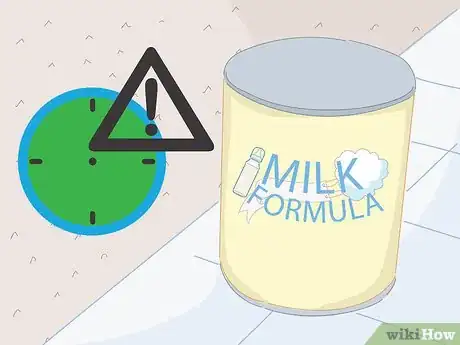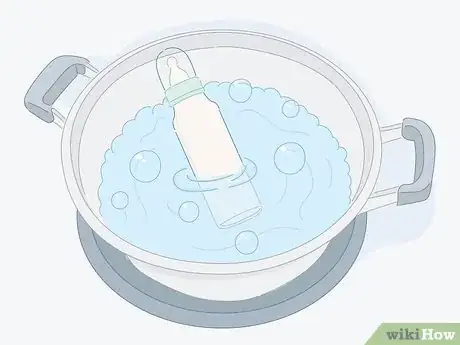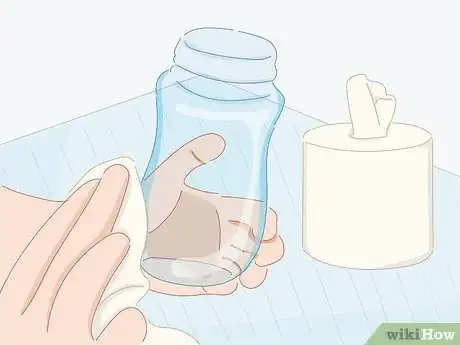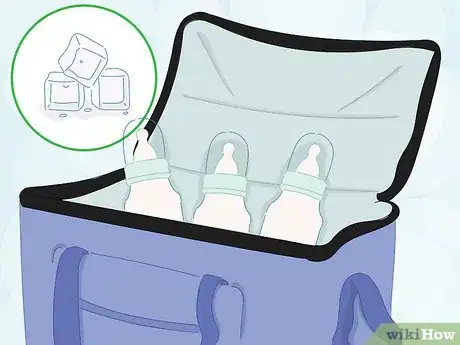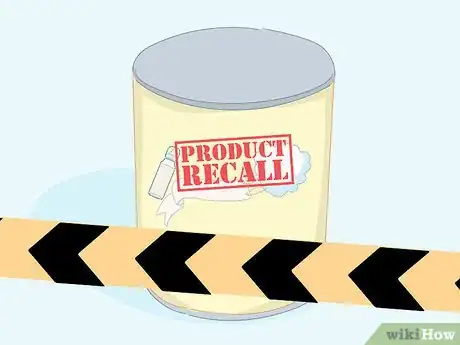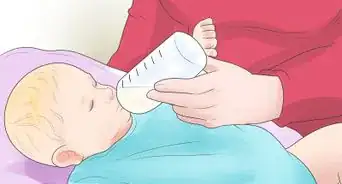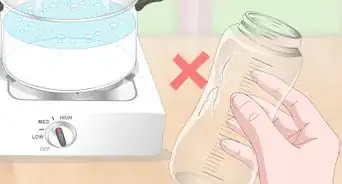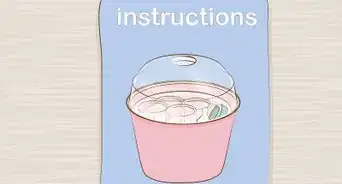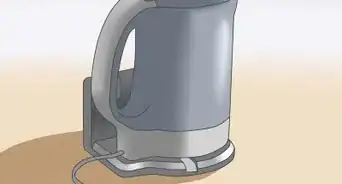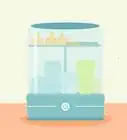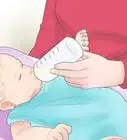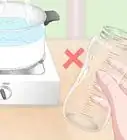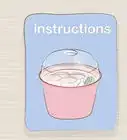This article was co-authored by Monica Moreno, MS, RD, LD/N. Monica Moreno is a Registered Dietitian and the Founder, Owner, and Lead Dietitian at Essence Nutrition in Miami, Florida. Monica specializes in nutrition consulting and school and corporate wellness programs. She holds a BA from The University of Florida and an MS in Dietetics and Nutrition from Florida International University. Monica was the dietitian for the Miami Marlins for close to 5 years, and she is currently visiting dietitian specialist at Ocean Reef Resort and Club. Monica is a member of the Academy of Nutrition and Dietetics, Nutrition Entrepreneurs Dietetics Practice Group, Integrative Nutrition Dietetics Practice Group, Collegiate and Professionals Sports Dietitians Association, and Weight Management Dietetic Practice Group. She was awarded the 2020 Coral Gables Chamber of Commerce Business Woman in Healthcare of the Year award.
There are 8 references cited in this article, which can be found at the bottom of the page.
This article has been viewed 91,244 times.
When breastfeeding your baby is not an option, nutrition is generally provided by the use of a baby formula. Unlike fresh milk from the breast, formula requires some preparation before offering it to your baby. Whether you opt for liquid formula or the powder form, the proper storage of formula is an important step in feeding your baby. The immaturity of your baby’s immune system leaves her vulnerable to germs and food borne illnesses. Discover the simple steps that you can take to protect your baby from illness due to improperly stored formula.
Steps
Focus on Cleanliness
-
1Clean your hands. Wash your hands thoroughly before touching anything related to the preparation of your baby’s formula. Allow your hands to air dry or dry them with paper towels. Do not reuse dish towels to dry your hands, as they can harbor bacteria and other kitchen germs.[1]
-
2Clean the lids of formula cans or covers. You want to remove any dust or other surface germs that may have accumulated. A clean cloth will suffice here. Avoid using your kitchen sponge, as sponges tend to harbor lots of germs.[2]Advertisement
-
3Wash your can openers. Make sure that you clean any can openers with hot, soapy water to strip away any harmful residue, bacteria, or other debris. Generally, electric can openers are made in a way that allows the blade device to be removed for cleansing purposes.[3]
-
4Sterilize any new bottles or nipples. Submerge them in boiling water for 5 minutes before putting any baby formula in them. After the initial sterilization process, bottles and nipples can be cleaned with hot soapy water and a clean rinse. Most bottles are dishwasher safe and can be run through the dishwasher to be cleaned properly.[4]
- If you wash by hand, clean nipples, bottles, and accessories with a brush that is specifically designed for doing so. Allow all bottles, nipples, etc to air dry.
Focus on Proper Storage
-
1Keep unopened formula containers at room temperature. Be sure to avoid exposure to heat or extreme cold. Temperatures between 55 and 75 degrees Fahrenheit are a good rule of thumb. Avoid storing them in direct sunlight.[5]
-
2Store powder. Store opened powder formula in a cool, dry place with the lid securely in place. Powdered formula should never be stored in the refrigerator, as the humidity can cause the powder to clump.[6]
-
3Store liquid ready-to-eat formula. Place any opened ready-to-feed liquid formula in a sealed container and discard any unused portions after 48 hours.[7]
-
4Store liquid concentrate formula. Store opened liquid concentrate formula in a covered container and refrigerator immediately after opening. Throw any unused mixed portions with in 24 hours of preparation.[8]
Prepare
-
1Avoid expired formula. Check the expiration dates on any formula containers before purchasing or preparing them for your baby.[9]
-
2Avoid ingredient separation. Remember to always shake the ready-to-feed liquid formulas before opening the can, as the ingredients will separate as they settle.[10]
-
3Use accurate measuring utensils. Follow all of the directions carefully. The proper measurement of water and formula is vital. Too little water can lead to dehydration whereas too much water can cause an insufficient supply of nutrients.[11]
-
4Pay attention to the water you use. Use water that has been labeled safe for water consumption by the state or local health department or sterilize it yourself by boiling water for 2 minutes to kill any germs. Always allow water to cool for approximately 45 minutes before adding formula to it.[12]
- Keep in mind that bottled water or filtered water does not necessarily indicate that the water is free from bacteria. Filters need to be changed within a required amount of time to avoid possible bacteria growth.
-
5Test the temperature of the formula before offering it to your baby. Shake the bottle vigorously for a few seconds to distribute the temperature evenly. Shake a few drops of the formula from the bottle onto your wrist. If it feels a bit too warm allow more cooling time.[13]
-
6Prepare your baby’s bottles on a need-to-have basis. If you are going to make a batch of formula, make only as much as you will need for the next 24 hours. This can help you cut down on waste and save a little bit of money in the long run.
Use Good Disposal Methods
Exercise Caution
-
1Do not purchase or use formula in containers that have been dented. The contents may have come in contact with the steel if the tin layer inside the container has been cracked. Rusting or spoilage is always a possibility when damage to the container is evident.[18]
-
2Avoid feeding your baby expired formula. Toss all expired formula out to prevent anyone from accidentally feeding it to your baby. If it is an unopened canister, try returning it to the store you purchased it from and ask to replace it with an up-to-date canister.[19]
-
3Refrain from freezing prepared formula. The process can lead to the separation of the fat and protein content.[20]
-
4
-
5Heat the formula properly. Avoid microwaving a bottle of formula to warm it up, because to do so may leave hot spots that can cause serious burns to your baby’s mouth or throat.[23]
- Refrain from placing a bottle of formula in a pan that is heating on the stove. Always remove the pan from the stove before placing the bottle in the pan.
-
6Dry properly. Avoid using a dish towel to dry any of the items that are used for feeding, as bacteria may be harboring in the towel. Use clean paper towels or air dry instead.[24]
-
7Keep formula cool until feeding time to avoid breeding germs. Remember to store formula bottles in an insulated bag or a cooler full of ice to prevent bacteria growth when out and about.[25]
-
8Watch for product recalls on formula. Potential contamination does occasionally occur and awareness is vital to prevent offering it your baby. If you did feed your baby any recalled formula, be sure to arrange for her to be seen by her health care provider promptly.
Expert Q&A
-
QuestionWhy can't you use formula after an hour?
 Monica Moreno, MS, RD, LD/NMonica Moreno is a Registered Dietitian and the Founder, Owner, and Lead Dietitian at Essence Nutrition in Miami, Florida. Monica specializes in nutrition consulting and school and corporate wellness programs. She holds a BA from The University of Florida and an MS in Dietetics and Nutrition from Florida International University. Monica was the dietitian for the Miami Marlins for close to 5 years, and she is currently visiting dietitian specialist at Ocean Reef Resort and Club. Monica is a member of the Academy of Nutrition and Dietetics, Nutrition Entrepreneurs Dietetics Practice Group, Integrative Nutrition Dietetics Practice Group, Collegiate and Professionals Sports Dietitians Association, and Weight Management Dietetic Practice Group. She was awarded the 2020 Coral Gables Chamber of Commerce Business Woman in Healthcare of the Year award.
Monica Moreno, MS, RD, LD/NMonica Moreno is a Registered Dietitian and the Founder, Owner, and Lead Dietitian at Essence Nutrition in Miami, Florida. Monica specializes in nutrition consulting and school and corporate wellness programs. She holds a BA from The University of Florida and an MS in Dietetics and Nutrition from Florida International University. Monica was the dietitian for the Miami Marlins for close to 5 years, and she is currently visiting dietitian specialist at Ocean Reef Resort and Club. Monica is a member of the Academy of Nutrition and Dietetics, Nutrition Entrepreneurs Dietetics Practice Group, Integrative Nutrition Dietetics Practice Group, Collegiate and Professionals Sports Dietitians Association, and Weight Management Dietetic Practice Group. She was awarded the 2020 Coral Gables Chamber of Commerce Business Woman in Healthcare of the Year award.
Registered Dietitian Formula can go bad if you leave it out for too long, especially if you live in a hot area.
Formula can go bad if you leave it out for too long, especially if you live in a hot area.
Warnings
- Know the signs of food-borne illness in order to prevent serious complications from arising. Vomiting and diarrhea can cause dehydration and if left untreated, can lead to kidney failure or death. Get your baby seen by your health care provider promptly.⧼thumbs_response⧽
References
- ↑ https://www.webmd.com/parenting/baby/baby-formula#3-7
- ↑ https://www.webmd.com/parenting/baby/baby-formula#3-7
- ↑ https://www.healthlinkbc.ca/healthlinkbc-files/making-storing-formula
- ↑ https://www.mayoclinic.org/healthy-lifestyle/infant-and-toddler-health/in-depth/infant-formula/art-20045791
- ↑ https://www.cdc.gov/nutrition/infantandtoddlernutrition/formula-feeding/infant-formula-preparation-and-storage.html
- ↑ https://www.babycenter.com/0_how-to-use-baby-formula-safely_1334673.bc
- ↑ https://www.babycenter.com/0_how-to-use-baby-formula-safely_1334673.bc
- ↑ https://raisingchildren.net.au/newborns/breastfeeding-bottle-feeding/bottle-feeding/formula-making-storing-transporting
- ↑ https://www.mayoclinic.org/healthy-lifestyle/infant-and-toddler-health/in-depth/infant-formula/art-20045791
- ↑ https://www.mayoclinic.org/healthy-lifestyle/infant-and-toddler-health/in-depth/infant-formula/art-20045791
- ↑ https://www.babycenter.com/0_how-to-use-baby-formula-safely_1334673.bc
- ↑ https://www.mayoclinic.org/healthy-lifestyle/infant-and-toddler-health/in-depth/infant-formula/art-20045791
- ↑ https://www.cdc.gov/nutrition/infantandtoddlernutrition/formula-feeding/infant-formula-preparation-and-storage.html
- ↑ https://www.healthlinkbc.ca/healthlinkbc-files/making-storing-formula
- ↑ https://www.healthlinkbc.ca/healthlinkbc-files/making-storing-formula
- ↑ Monica Moreno, MS, RD, LD/N. Registered Dietitian. Expert Interview. 4 August 2021.
- ↑ https://www.healthlinkbc.ca/healthlinkbc-files/making-storing-formula
- ↑ https://www.babycenter.com/0_how-to-use-baby-formula-safely_1334673.bc
- ↑ https://www.mayoclinic.org/healthy-lifestyle/infant-and-toddler-health/in-depth/infant-formula/art-20045791
- ↑ https://www.foodsafety.gov/blog/infant_formula.html
- ↑ Monica Moreno, MS, RD, LD/N. Registered Dietitian. Expert Interview. 4 August 2021.
- ↑ https://www.foodsafety.gov/blog/infant_formula.html
- ↑ https://www.foodsafety.gov/blog/infant_formula.html
- ↑ https://www.foodsafety.gov/blog/infant_formula.html
- ↑ https://www.foodsafety.gov/blog/infant_formula.html
